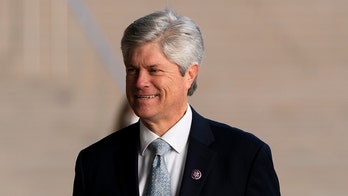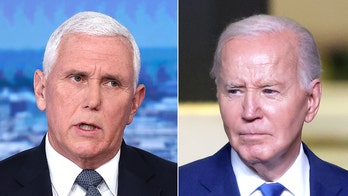WASHINGTON -- There was plenty of bark but little bite in the Senate on Saturday at the start of a rare weekend session aimed at moving forward with legislation to reinvent the U.S. health care system.
Democratic and Republican senators proposed amendments and debated them vigorously but took few votes, as the buzz on Capitol Hill turned to a planned visit Sunday from President Obama, who has put the legislation atop his domestic agenda.
Obama is expected to address Democratic senators at their caucus meeting to rally them to support the bill, as party leaders face an uphill battle hammering out a compromise that could get the legislation passed by the end of the year.
At the start of Saturday's session, Senate Majority Leader Harry Reid, seeking to quell any potential unrest, quickly reminded his colleagues that Americans can't take weekends off from worrying about health care and the Senate shouldn't either.
"Yesterday, 14,000 people lost their health insurance. Today, another 14,000," he said. "American people don't get weekends off from this injustice. Bankruptcy doesn't keep banker's hours."
As Democrats prepared to vote on an amendment targeting tax breaks for insurance executives' pay, Reid lashed out at "greedy health insurance companies" that he said make profits by neglecting consumers' health needs.
Reid is racing the clock to complete action on the 2,000-page remake of the nation's health care system by Christmas. With both sides jockeying for political advantage amid raging partisan debate, Democratic senators used their weekend work to cite their commitment to reform, while Republicans are underscoring the bill's cuts to Medicare, seeking to undermine support for the legislation among seniors and others.
Lawmakers didn't get to their first vote until mid-afternoon -- on a mostly symbolic amendment proposed by Sen. John Kerry, D-Mass., affirming the Senate's support of seniors' home health benefits.
Democrats later defeated a Republican amendment to block Medicare cuts in a vote of 53-41. The measure, offered by Sen. Mike Johanns, R-Neb., would have eliminated cuts of $40 billion in payments to home health agencies over the next decade.
It was the third in a series of GOP amendments highlighting the legislation's more than $400 billion in cuts to projected Medicare payments for private insurance companies, hospitals and other providers. Democrats defeated the first two, but the GOP wants them to continue casting politically risky votes.
The nearly $1 trillion legislation would provide insurance coverage to more than 30 million more people over the next decade with a new requirement for nearly everyone to purchase insurance. New insurance purchasing marketplaces would be set up, lower-income people would get subsidies, the federal-state Medicaid program for the poor would be expanded and unpopular insurance company practices such as yanking coverage when someone gets sick would be banned.
The biggest problem for Reid: getting agreement among his own Democrats on the divisive issues of abortion and a government insurance plan to compete against the private market.
He needs all 60 members of his caucus to agree, but several moderates are balking.
"Abortion and public option are really the major obstacles at this point," said the No. 2 Senate Democrat, Dick Durbin of Illinois.
Talks to find common ground on those issues are happening behind the scenes, but coloring the public action.
Democratic leaders were giving the spotlight Saturday, the sixth day of debate on the bill, to Sen. Blanche Lincoln, D-Ark. -- a key moderate with a difficult re-election next year -- to propose an amendment that would limit tax deductions for insurance executives' salaries.
The amendment would not specifically limit how much insurance executives' could be paid, but how much of their pay companies could deduct as a business expense. Currently that amount is $1 million per executive. Lincoln's amendment would reduce it to the level of the U.S. president's salary, now $400,000.
The bill already includes a limit of $500,000 added by Lincoln earlier, so the new amendment doesn't represent a major change, though it does add a provision directing the expected $650 million in revenue to the Medicare trust fund.
It also gives Lincoln something to brag about as her poll numbers sag back home.
Republicans again devoted their Saturday radio address to criticizing the legislation over a topic debated earlier -- preventive care for women. That became an issue after a government advisory panel recommended against regular mammograms for women in their 40s. One of the votes the Senate cast this week was to safeguard coverage of mammograms.
Carly Fiorina, a former Hewlett-Packard Co. chief executive, breast cancer survivor and a Republican candidate running for the Senate seat from California now held by Democrat Barbara Boxer, said that the recommendation on mammograms was an early taste of what could happen under the Democrats' plan.
Fox News' Trish Turner and The Associated Press contributed to this report.




